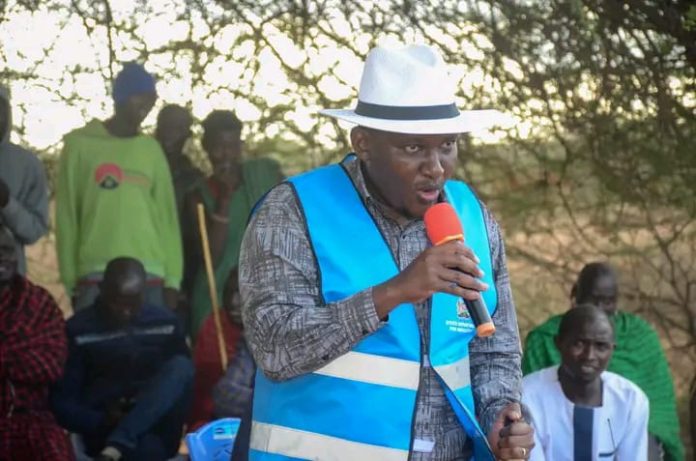A Ksh 253 million irrigation project has been launched in Meshenani village, Kajiado South Constituency, marking a major milestone in the government’s ongoing effort to strengthen food security and build climate resilience in arid regions.
The Amboseli Irrigation Project, implemented under the Bottom-Up Economic Transformation Agenda (BETA), is designed to expand access to clean and reliable water for domestic use and agriculture. It will also promote irrigated farming, improve the livestock value chain, and create new income opportunities for local residents.
According to Irrigation Principal Secretary (PS) Euphantus Kimotho, the project will pump up to three million litres of water daily and serve over 5,000 residents. He described it as a critical step in enhancing sustainable water access and reducing the effects of climate change on rural livelihoods.
“Once complete, this project will not only ensure food security but also empower families economically,” said Kimotho during the launch ceremony.
The irrigation scheme will draw water from Olgulului Springs and an artesian well to supply homes, farms and livestock. It features 21.8 kilometres of conveyance lines, distribution systems, infield networks, road crossings and watering troughs for livestock. The project is expected to serve about 15,000 livestock units once fully operational.
ALSO READ:
Land Prices Ease in Ongata Rongai, Kitengela, and Karen as Economic Pressures Stall Growth in Q3
Residents have long endured water scarcity, often trekking several kilometres or paying as much as Sh50 for a 20-litre jerrican. Many say the new development will finally bring relief to a community that has depended heavily on unpredictable rainfall and distant water sources.
Kajiado South Member of Parliament (MP) Sakimba Parashina welcomed the project, saying it will transform livelihoods by improving access to water for both households and farms. “Women have been walking long distances to fetch water, but that will soon be a thing of the past,” he said.
The irrigation project will be implemented over two years, and once completed, it is expected to spur agricultural productivity, boost nutrition, and open new employment opportunities. It will also contribute to long-term environmental sustainability and climate adaptation efforts across Kajiado County.
Through such investments, the government aims to reduce the vulnerability of pastoral and farming communities while laying the foundation for inclusive rural development.
By Benedict Aoya




